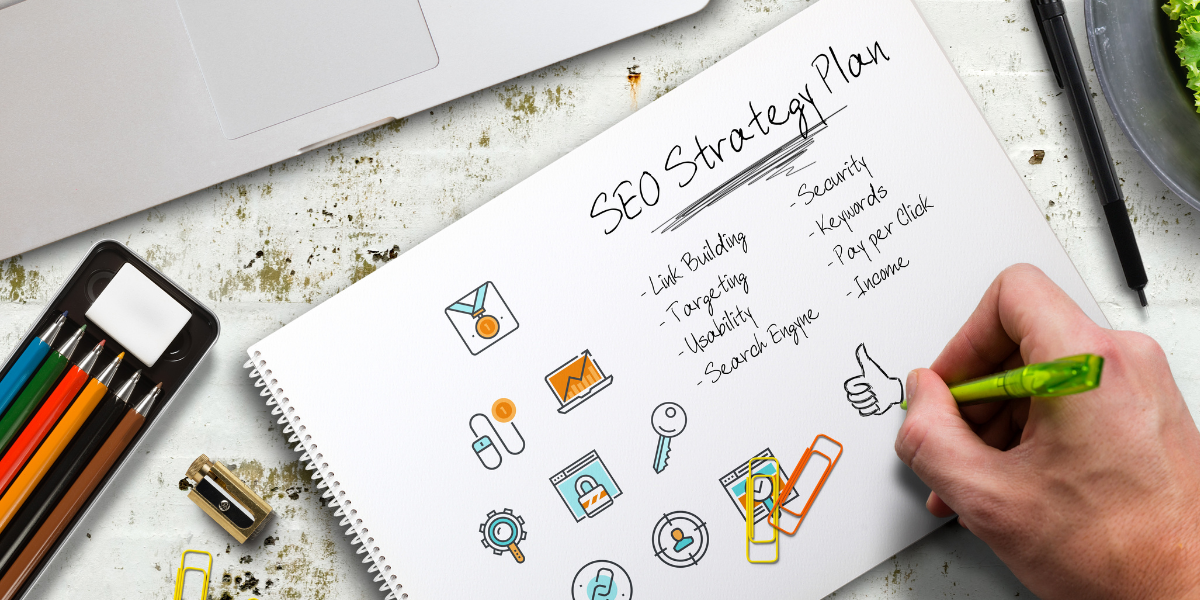
Search engine optimization (SEO) may seem like the simple process of improving the quality and quantity of organic website traffic, but what that looks like in execution is far more complex – and far different than what it used to be. While old school SEO exclusively considered easily applicable tactics like keyword placement and backlinking, strategies that don’t deeply integrate the user experience – how users engage with content both on Search Engine Result Pages (SERPs), and once the user visits your domain, will fall short.
SEO considers the vastly intelligent algorithms utilized by search engines: what people search for; what queries or keywords drive traffic to a domain; how users engage with every feature of the pages they visit; what technical optimizations have been made to improve metrics (site speed, layout shifts) and so much more.
So whether you’re looking to grow your audience, maintain visibility, or simply want customers to be able to find your website if they don’t have the URL bookmarked, SEO needs to be a critical part of your eCommerce store.
Let’s break down some of the top benefits of having an active, ongoing SEO strategy paired with development and UX-focused work.
- SEO targets quality traffic as part of a holistic business strategy
- Better online presence, user experience, and visit frequency.
- SEO is changing ALL the time
SEO targets quality traffic as part of a holistic business strategy
SEO is about defining and growing your audience. In 2021, SEO is a critical component of the branding and overall presence of your business. By optimizing a website to trend higher on the correct Google searches, your brand reaches more relevant customers. More prospective, qualified, customers means a bigger bottom line, and the data shows this.
Once upon a time, SEO was seen as a small fraction of the marketing pie, but it’s since grown beyond its confines to encompass CRO, UX, and business theory to be one of the fastest growing methods of increasing high value site visits to your shop. Especially following COVID, consumers are more likely than ever to shop online.
With a clean UX and relevant on-page content, users are far more likely to click “purchase”, but there’s another, oft-overlooked side to this. 70-80% of consumers research a business online before visiting the store or making a purchase. Of those, 50% will find your website through a search engine. If your website design is unappealing or dated, up to 38% of consumers will leave your site. Over the course of months or years, this can account for millions or more in profits left on the table.

Better online presence, user experience, and visit frequency.
‘Start a blog!’ ‘Get an email list going!’
These are common online tips to reach prospective clients and customers, but the most overlooked aspects of website performance often come from the most mundane places that users interact with. Have you ever analyzed or pulled in-depth reports to check your site’s health? When was the last time you checked to see if your on-page content is relevant to your target audience? Has there been a recent shift in your industry? These are all important questions that SEO can not only answer, but keep you competitive in your field!
Many web store owners are often surprised that their site health is… less than stellar. This often means a website is unwieldy, slow to load, and looks unprofessional to consumers or to search engines like Google. Love it or loathe it, Google bots dictate what they believe are the most relevant sites for users to view based on a host of algorithms and rules. Poor practices lead to poorer search rankings, and hit a business’s bottom line. SEO fixes this by addressing the problems of a site, maintaining it through monthly health checks and continuous improvements as new currents appear and marketing strategies change.
SEO is changing. All the time.
The same way the stock market shifts to particular trends and needs, so too does SEO. This is both a good and a bad thing. Websites that received a major overhaul a few years ago may be trending lower every month. Search engines are constantly changing their parameters for what makes a quality website, meaning the tips and tricks of yesteryear are likely out of date today. The good news is that these currents in the internet ocean mean entrepreneurs and businesses can find new, relevant traffic quicker than expected, and honest businesses with excellent goods or services can shine all the brighter for their efforts.
At their core, search engines often have good intentions for where they direct traffic because it makes up so much of the internet user experience. If they didn’t, they would lose credibility. 2021 is primetime for the right companies to trend highest and receive traffic, not just the most well-known.
This only scratches the surface of SEO’s mighty capabilities, especially for B2B companies looking to expand their reach and hit their goals in a post-COVID environment. Most web-store owners have no idea how successful a website can be with a holistic business strategy. There are nuances to platforms like Adobe Commerce (Magento) that are often not understood by general agencies, and that is one of many things that sets Human Element apart. We are not an SEO agency. We are an eCommerce agency that does things the right way – and that means we do SEO.



